OLD POST ALERT! This is an older post and although you might find some useful tips, any technical or publishing information is likely to be out of date. Please click on Start Here on the menu bar above to find links to my most useful articles, videos and podcast. Thanks and happy writing! – Joanna Penn
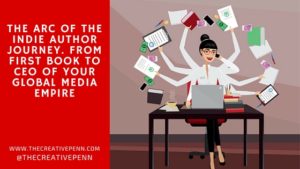
So don't worry if you're not ready to assume the mantle of CEO of your own business just yet.
You don't have to know everything now. You can learn on the job. We all have to. None of us are born with the knowledge of how to do these things – we just find out along the way.
This is the story arc of the author's writing and business life as I have experienced it (so far) and the main challenges at each stage, as well as how to overcome them.
This is an excerpt from Business For Authors: How To Be An Author Entrepreneur, available in ebook, print and audiobook.
Stage 1: “I want to write a book”
You've always been a reader and now you’re reading all the ‘how to’ books on writing. You’re attending seminars and conferences on writing. Perhaps you’re writing lots already, or perhaps you’re learning about writing without doing it yet.
Maybe you're scared that what you write will be terrible. Maybe what you're writing is terrible. But you know you want to be a writer, and you’re going to put in the effort to write that first book. You have a huge learning curve ahead but you know you will persist.
Challenge:
Actually writing and finishing a book. You can read all the books on writing but until you actually sit down and write, you won't get black on white and you'll never finish a book.
How to overcome it:
The realization that ‘it's OK to suck' in your first draft (as discussed by Mur Lafferty in her podcast, I Should Be Writing and in this interview). This is also the theme of ‘Bird by Bird' by Anne Lamott, where she advocates writing “shitty first drafts.” My own metaphor for this is Michelangelo's statue of David – Michelangelo said he saw David within the marble and he just had to cut away the excess and then polish it until it was perfect. Authors have to create the block of marble with that first draft and then editing and rewriting will shape the statue. Creating that block is a hell of a lot of work.
- Do timed writing exercises, in a class if you don't have the discipline to do this alone. Set word count goals. Do NaNoWriMo. Use Write or Die software. Do anything to get a first draft done. It's hard work people. Writing a book is not easy, otherwise everyone who says they want to write one would actually do it!
- Go through the learning curve while actually writing. Don't read a book on self-editing until you're actually editing. Invest in a professional editor to help you with your writing. I learned far more from paying an editor to work on my manuscript than sitting in classes talking about other people's work. You also need to write a lot. You won't improve unless you write more.
- Learn about editing and your publishing options – but don't obsess too much about the latter until you have at least a first draft. I often get questions about publishing from people who haven't even starting writing yet!
- Read self-help books. Listen to podcasts/motivational audios. Focus on shifting your mindset to that of an author. You can read the journey of my first novel here.
Stage 2: “I am a new author”
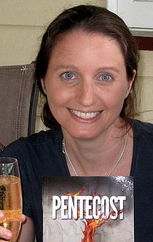
You’ve learned the process to get from words to first draft to finished product, and you’ve worked with an editor to improve your book. You’ve learned how to self-publish, or you’ve made it through the lottery process of agent and publisher. You’ve got the book out into the world …
There are many people who say they want to write a book, but never actually get around to it. So congratulations if you have your first book!
Challenge:
Realizing that very few people actually care that you wrote a book, and that you have to learn about marketing or no one will ever read it. Realizing that you're not an instant millionaire and that the income from one book is not significant. Realizing that this is just the beginning of the next step.
How to overcome it:
- Make a decision on whether there will even be any more books. Was the process of writing a book worthwhile for you? Are you brimming with ideas for a new one? Are you excited about being able to reach people with your words? Are you enthusiastic about learning more?
- Start writing the next book. If you have the bug, the ideas will be plentiful and you'll be ready to tackle the next book. You might need a bit of a rest, but after a while, you'll get that itch again. So, get writing!
Learn about marketing. Unless you are one of the very few authors whose publisher will do ALL the marketing for the rest of your life, as well as for the first month, you will need to learn about marketing. I started to learn when I had two thousand copies of my first book sitting in my house. I had thought they would sell themselves, but of course, they didn't! Most of them went into a landfill six painful months later. Don't make my mistake! That initial failure kickstarted my own journey into learning marketing and over time, I've discovered I actually enjoy my marketing activities. After all, it's about connecting with readers who enjoy the same things you do – your tribe.
- Check out what to do if your book isn't selling, and check out ‘How To Market a Book.'
Stage 3: “I am an established author”
Once you've written a few books, especially if they are within the same genre or category, you know approximately what you’re doing. It's still hard work, but you understand the process.

Perhaps you still work a day job, and you’re wondering how to take it to the next level and become a full-time writer, or perhaps you want a side business that brings in extra money.
Challenge:
Balancing your time between writing more, marketing what you already have, real life and probably another job as well as family. Trying to decide whether to give up your day job for the full-time writer's life, and potentially conflicting with family around this. You're making some money but perhaps not quite enough to pay all the bills and have some comfort margin.
How to overcome it:
- Use a diary/schedule to plan your writing time and focus on becoming more organized.
- Get clear on your brand and what you are delivering to what customers. This will help focus what you write and produce.
- Establish
criteria for going full-time e.g. Income level of $2000 a month from books before quitting the day job. Reduce your risk e.g. Downsize, save six months income, go part-time at work. You can also get some ideas in this free video series '11 ways to make money as an indie author.'
Stage 4: “I am the CEO of my creative company”
There is a tipping point where you go from being an author to running a business as an author.
You can now write for your living and you need to take the business side seriously, instead of your writing being just a hobby. The penny drops around rights exploitation and you realize how far your work can go through the opportunities available to authors now.
Whatever the catalyst, you decide to take control of your financial destiny and career as an author.
This may mean you go full-time as an author-entrepreneur, or you allocate a proper chunk of time to the business. To step into this phase means you are serious about being an author-entrepreneur. You assume the CEO role – you're in charge.
Challenge: Learning business skills so you can work on your business, not just in your business. Juggling the writing, the marketing and the production side, as well as trying to think about strategy, release schedules and more. Trying to keep track of all your products, the rights you want to exploit, the multiple projects you have going at once and keeping an eye on other opportunities as well as managing the contractors who work for you on various things.
How to overcome it: I'm currently writing a book about this level of the author journey, and stems from my own attempts to manage the challenges, but there are some overarching principles.
- Get clear on exactly what you want for this business and your life. Look after your physical and mental health as well as your business. Say ‘no' more so you can focus on your core target market and what enlivens you.
Establish your professional team. You need a team in place at this stage, and preferably an assistant, or someone else full time in the business as well as contractors. One of the first people I hired was a book-keeper to help me with the (dreaded) accounts!
- Streamline your processes. If you have a production plan and you know what books are coming, you can book editors, cover designers in advance and tell fans what to expect. If you know where all your revenue streams are coming from, you can make sure all are reconciled to sales. If you manage your time, you can juggle being creative and being an entrepreneur.
- Learn some business skills. Check out The Business Rusch posts by Kristine Kathryn Rusch and my book, Business for Authors: How to be an Author Entrepreneur, available now in ebook, print and audiobook formats.
Do you agree with these stages on the author's journey? Where do you fit right now and where would you like to get to? Please do join in the conversation and leave a comment below.
Top image: Flickr Creative Commons Daniel McDermott
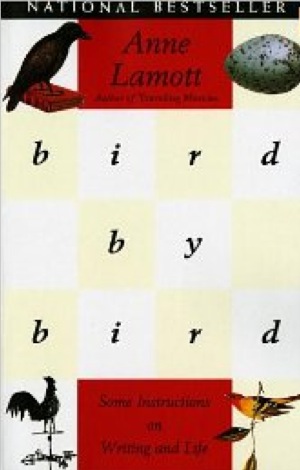
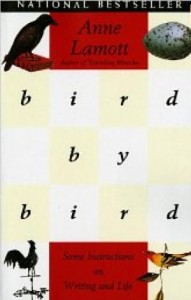
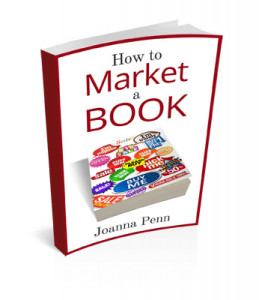
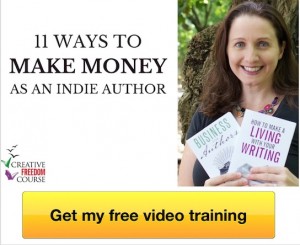
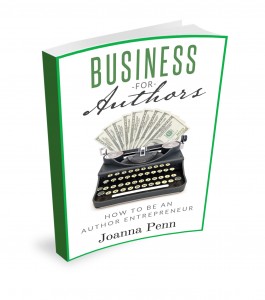


Great post. Really makes things clear. I seem to be approaching Stage 2, working on publishing my first novel, while planning the second, and learning all I can about marketing! There is so much information out there, much of it conflicting, and sometimes it’s hard to find the strategies that apply to you (so many tend to assume you’ve already published!). I have the Indie Power Pack, with your book and a couple of others. As a first time author, are there any other books you recommend that direct their advice to those with NO other published books to work with?
Thank you, Joanna for another great post. When I first read the title I thought to myself will I ever be a CEO of my own creative publishing company??? But, wait that is exactly where I am headed. I have Indie published my first nonfiction title and I am working on my first fiction novel. And, I expect to be able to fully support myself from this venture. All very exciting. I have learned the most about this process from your blog and podcasts.
Fantastic 🙂 It can happen faster than you think as well! Keep writing!
I am learning to become a self-publisher. I have to learn it as if I am in a classroom setting. I don’t have natural technological ability, so I have to study and use trial and error as a process to learn independently. I have used publishing companies in the past, but it seems that sales are not as productive as I would like them to be, even though my books are in various stores.